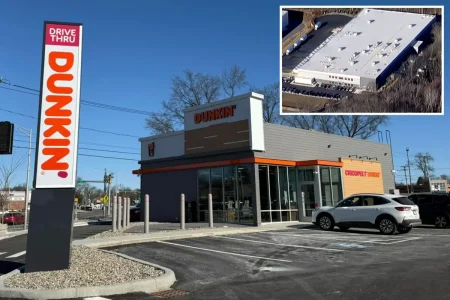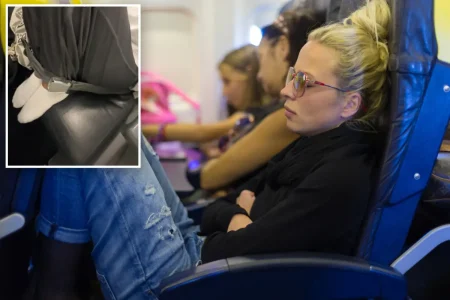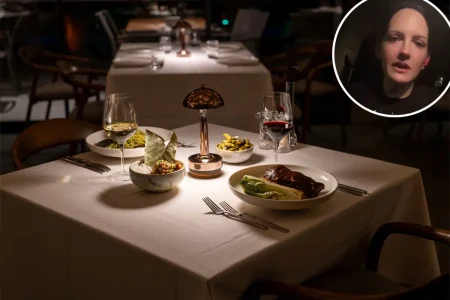Hilary Messer-Barrow, a 30-year-old Canadian woman, has traded the bustling city life of Vancouver for a remote existence in Beaver Creek, Yukon, a community of around 90 residents. This drastic change five years ago brought with it a unique set of challenges, most notably the arduous grocery shopping trips. Unlike most people who can simply pop to their local supermarket, Messer-Barrow and her husband embark on a grueling 10-hour round trip, covering 300 miles, every six to eight months to stock up on essentials. This epic journey, which costs them upwards of $1,250 per trip, includes not just groceries but also household goods, dog food, and any necessary appointments in Whitehorse, the nearest city with such amenities.
The sheer distance and the infrequency of these trips necessitate meticulous planning. Before setting out, the couple creates a comprehensive spreadsheet, detailing every item they need, from food staples to toilet paper. This meticulous approach is crucial because a forgotten item means going without until the next trip, months down the line. The long drive, often spread over two days, especially during winter with its limited daylight hours, also requires careful preparation for potential emergencies. A fully stocked emergency kit is a must-have, given the remote nature of the roads and the risk of breakdowns or accidents in an area with limited assistance.
The cost of these expeditions is significant, encompassing gas, food, and occasional overnight stays. During summer, with its longer daylight hours, they sometimes manage the round trip in a single day. However, winter’s short days and harsh conditions often necessitate an overnight stop, adding to the expense. Despite the challenges, Messer-Barrow views the journey as a privilege, drawing parallels to the scenic road trips that attract tourists from around the globe to the Yukon. This perspective transforms what could be a tedious chore into an opportunity to appreciate the stunning landscapes of their adopted home.
Living off the grid necessitates a degree of self-sufficiency. During the warmer months, Messer-Barrow and her husband cultivate a garden, supplementing their supplies with fresh produce. Foraging for berries and hunting for wild game and fish further reduce their reliance on store-bought food, especially in summer. This resourceful approach not only lessens their grocery bill but also connects them more deeply to the land and the rhythms of nature. This resourcefulness is not merely a cost-saving measure but a way of life, interwoven with the fabric of their off-grid existence.
Messer-Barrow’s unique lifestyle has garnered attention on TikTok, where she documents her experiences for over 150,000 followers. Her videos showcasing the grocery shopping odysseys have sparked a mix of awe and disbelief among viewers. Some express concern about the potential for emergencies, imagining the difficulties of needing medical attention or simply forgetting a crucial item. Others marvel at the contrast with their own convenient shopping routines, highlighting the lengths Messer-Barrow goes to for basic necessities. These reactions underscore the dramatic difference between urban and off-grid living, prompting reflection on the conveniences most take for granted.
Despite the challenges and occasional anxieties expressed by online onlookers, Messer-Barrow remains steadfast in her love for her chosen lifestyle. The remote community of Beaver Creek offers a unique sense of belonging and a strong connection to nature. The very isolation that necessitates the epic grocery runs also fosters a close-knit community where residents share a deep appreciation for their surroundings. Messer-Barrow and her husband feel fortunate to be part of this community, embracing the slower pace and the self-reliant lifestyle. While acknowledging that this life isn’t for everyone, they find profound satisfaction in their connection to the land, the community, and the unique challenges and rewards of their off-grid adventure. The epic grocery runs, although arduous, become a symbol of their commitment to this life, a testament to their resilience, and a reminder of the beauty that surrounds them.















